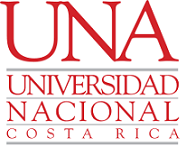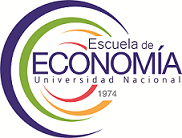About the Journal
Focus and Scope
Economía y Sociedad is a journal of the School of Economics of the Universidad Nacional de Costa Rica (ESEUNA), published every six months (January-June and July-December). The Journal focuses on the publication of articles with innovative approaches and analytical perspectives which promote the common good and social and environmental justice.
Furthermore, and in agreement with the principles of the Universidad Nacional and the Facultad de Ciencias Sociales (Social Sciences School), the journal promotes the publication of articles with analytical approaches and perspectives that are not only original, but also encouraging of the common good and social and environmental justice.
It also has a pluralistic approach to the social sciences, promoting theoretical and methodological diversity, so long as it contributes to confronting socioeconomic challenges and contributing to knowledge.
The target audience consists of academics, professionals and students in the Economic and Social Sciences.
The Journal receives submissions for publication throughout the year, which are reviewed by specialist peers external to the Journal using the Double Blind methodology. The average time for the evaluation and publication of articles is 8 to 12 weeks.
Policy on the reception of articles entirely in English
The Journal receives articles written completely in English; however, once the article is accepted (after making the corrections suggested by the reviewers), the author(s) must commit themselves to providing the Journal with proof of a style review by an expert (a philologist or translator), and must attach the revised article in Word format with change control. The Editors of the Journal will give the author(s) further instructions once the article is received.
Peer Review Process
The review considers three fundamental criteria:
- Relevance of the topic
- Original contribution to knowledge
- Consistency of the text with respect to the exposition of objectives, their development, argumentation and justification of conclusions.
There are three possible outcomes of the review
- Approved for publication as is: the text is accepted in the form in which it has been submitted.
- Conditional: the reviewers make comments on the article, and recommend its publication as long as the suggested improvements are made. These are categorized as Small Modifications or Extensive Reviews
- Rejected: the reviewers do not recommend the article for publication.
To review each article, at least two external specialists in the subject are contacted. The review is carried out using the Double-Blind methodology, which is used to prevent the results of an evaluation from being influenced by the placebo effect or by observer bias. The reviewers or readers will not know who the authors of the articles submitted for evaluation are, and the authors will not know who is evaluating their articles.
The Journal has a Form for evaluation with recommendation in which the reviewers are informed of the criteria they should use in their evaluations. The form also contains a link for reviewers to access the document “Information for Authors”, so that they have the document used as a guide by authors in the process of submitting their articles.
In the event that there is a negative and a positive evaluation of an article by the two reviewers, a third evaluation will be carried out to provide a reference for decision-making by the Editorial Committee.
The final decision to accept or reject an article is made by the Journal’s Editorial Committee, based on the results of reviewer evaluations and improvements made by the authors. The decision may not be appealed.
Publication Frequency
Economía & Sociedad is a continuous and biannual Journal (January-June and July-December of each year). The Journal is open access, and every new article will therefore be published on this page.
Open Access Policy
The Economía y Sociedad is an Open Access journal, allowing users to have full and free access to electronic content. This means that users can read, download, store, print, search, index, use as data for software, and link to the full text of this Journal. It also allows the articles to be distributed in pre-print, post-print and official versions published by the Journal, without requesting prior permission from the editor or the author, as long as it is done for non-commercial purposes, no derivative works are generated through this distribution, and the source and author (s) of the work are mentioned (Creative Commons Attribution-NonCommercial-ShareAlike 4.0 International License)
Digital Preservation System
Economía y Sociedad relies on the LOCKSS digital preservation system (http://www.lockss.org/), to create a secure and permanent archive of the Journal distributed among the participating libraries, allowing said libraries to create permanent archives of the Journal for preservation and restoration purposes. For more information...
Additionally, the Journal makes use of DOI digital identifiers. Each published article has its own DOI.
Free Publication
The submission, review and publication processes are FREE for authors; in other words, the authors do not incur any cost for the process of editing their articles (complete articles in Spanish). The expenses of these processes are covered by the Universidad Nacional de Costa Rica. Only the cost for total translation of the article from Spanish to English is charged to the author(s), which is OPTIONAL and VOLUNTARY; this additional effort, however, contributes to the international visibility of the document.
In addition, the Journal does not charge for digital subscriptions.
The printed version is ONLY available for the legal deposit that must be made by the Universidad Nacional de Costa Rica and the institutional Exchange.
Plagiarism Detection Policy
The Journal Economía y Sociedad requires that all actors involved in the publication process of the articles, whether they are staff of the editorial team, reviewers or authors, follow international ethical norms and adopt the practices suggested by COPE (the Committee on Publication Ethics).
Google and Turnitin services are used to detect plagiarism.
Responsibilities of the participants include:
- Editors must adopt the best peer review standards and methods, in such a way that all articles are reviewed by specialized and qualified reviewers. They must clarify which sections are not peer reviewed and ensure that they are clearly defined, that reviewers contribute to the detection of plagiarism and potential ethical anomalies, and ensure that the Journal has clear publication standards. Finally, editors must advise both authors and reviewers on all publication processes, to promote appropriate research and publication conduct.
- Authors must carry out original research in a responsible and ethical manner; likewise, they must ensure that results are presented honestly, completely and transparently, so that the scientific community can verify or replicate the data. They should not simultaneously submit the manuscript to other journals for review. In addition, the author(s) must provide attribution to the studies on which they based their research and the entities that financed it, as well as declare if there is a conflict of interest. Finally, the author(s) must assume responsibility for the published research.
- Reviewers must inform the editors about possible fraud or plagiarism of the research evaluated. They must issue an expert opinion on the articles objectively and within the time established. They must also substantiate the reasons for which an article is rejected, or provide suggestions that can strengthen the case for its publication.
- Sponsors
- Updated March. 2024







